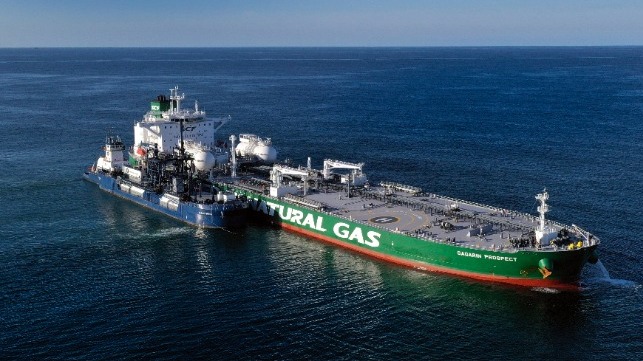NGOs Call on EU to Exclude Biofuel and LNG from New Clean-Fuel Program

A coalition of NGOs led by Transport & Environment has called on the European Commission to "explicitly exclude" biofuels and natural gas from a new clean marine fuel initiative, advocating for investment in electricity-based fuels instead.
The European Commission's proposed FuelEU Maritime initiative is intended to accelerate the uptake of low-carbon fuels for vessels calling at EU ports. It parallels (but does not overlap with) the separate EU Parliament proposal to incorporate European shipping's CO2 emissions into the EU Emissions Trading System (ETS).
"There are certain risks that the FuelEU and ReFuelEU initiatives . . . could inadvertently cause the uptake of alternative fuels that are worse than [conventional] fossil fuels," the group warned. "Crop-based biofuels do not provide significant carbon reductions compared to fossil fuels, in most cases actually resulting in much higher emissions."
The groups also took aim at so-called advanced biofuels, including biomethane or bioliquids, which are derived from non-crop feedstocks. In particular, T&E pointed to the possibility of reaching sustainable feedstock limitations for these fuels in supplying the aviation sector, along with other sectors which rely on conventional gas. Since shipping has other alternatives, like so-called "power-to-x" fuels derived from renewable electricity, the coalition argued that "advanced biofuels should not be promoted in the shipping sector."
The NGOs also warned against further public investment in LNG infrastructure, cautioning that fugitive methane emissions in the upstream and midstream segments could undercut the GHG reduction potential of natural gas as a marine fuel. "The EU’s current relevant legislation ignores methane slip and leakages," they wrote. "This runs the risk of the EU investing billions of euros of public money in fossil natural gas infrastructure and ships, which are doomed to become stranded assets if the EU is to reach climate neutrality by 2050."
Proponents of LNG as a marine fuel point to the possibility of substituting biomethane and e-methane in the supply over time, phasing out conventional natural gas while continuing to use LNG bunkering infrastructure.

that matters most
Get the latest maritime news delivered to your inbox daily.
Biofuels are currently included in the European Commission's prospectus for FuelEU Maritime. The program outlook indicates that the EU will try to boost shipping's use of shore power, battery-electric power, liquid biofuels, bio-LNG, electrofuels, blue/green hydrogen and blue/green ammonia. However, the EC appears to exclude natural gas from its proposal: in the program overview, the EC indicated that in its view, "whilst LNG substantially contributes to pollution reduction, any contribution towards GHG reduction is limited."
The FuelEU Maritime initiative is expected to launch soon: EC Transport Commissioner Adena Valean has signaled that a related proposal will be part of a package of EU climate legislation to be released next month. Based on the EC's prospectus, potential policy measures could include improved access to funding for alternative fuel initiatives; providing port fee discounts to operators; imposing prescriptive requirements on alternative fuel blending or shore power usage; or setting goal-based performance requirements on the carbon intensity of energy used in marine operations, without promoting specific technologies.
